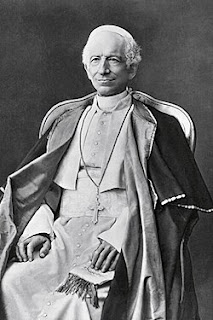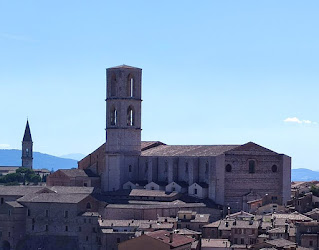Palermo falls to the Allies
Capture of Sicilian capital triggered ousting of Mussolini
One of the most significant developments of the Second World War in Italy occurred on this day in 1943 when Allied forces captured the Sicilian capital, Palermo. A battle took place between General George S Patton’s Seventh Army and some German and Italian divisions but it was not a prolonged affair. The Sicilians themselves by then had little appetite to fight in a losing cause on behalf of the Germans and the invading soldiers were greeted by many citizens as liberators. It was not a decisive victory for the Allies but it had a symbolic value, signifying the fall of Sicily only 12 days after Allied forces had crossed the Mediterranean from bases in North Africa and landed at Pachino and Gela on the south coast of the island. In fact, the Americans and the British were still meeting German resistance around Catania and Messina in the northeastern corner of the island. Read more…
_______________________________________
Massimo Carlotto - novelist
Writer wrongly jailed for murder now best-selling author
Massimo Carlotto, the best-selling novelist who spent three years on the run, eight years in jail and a further 11 years clearing his name over a murder he did not commit, was born on this day in 1956 in Padua. Carlotto, who began his writing career in 1995 with a fictionalised autobiography, Il fuggiasco (The Fugitive), about his time on the run, is best known for his dark crime series featuring an unlicensed investigator, Marco Buratti, nicknamed L’alligatore (The Alligator), six of which have been published in English. The so-called Carlotto Case became one of the most controversial episodes in Italian legal history. It began in 1976, at the height of the period of intense political tension and unrest in Italy known as the Years of Lead, when the 19-year-old Carlotto, then a student, was a member of the ultra left activist group, Lotta Continua. Read more…
Gorni Kramer - jazz musician
Multi-talented composer of more than 1,000 songs
The songwriter, musician and band leader Gorni Kramer was born on this day in 1913 in the village of Rivarolo Mantovano, near Mantua. An accomplished accordion and double bass player, Kramer later became a record producer, arranger and television writer. His embrace of the jazz and swing genres developed in spite of them being banned from being played on Italian state radio during the Fascist era. He was a prolific composer thought to have written more than 1,000 songs during a career that spanned 60 years. Kramer’s non-Italian sounding name led to a misconception that he was born in another country, yet it was his real name - reversed. He was born Francesco Kramer Gorni, so named because his father was a fan of the American cycling world champion Frank Kramer. It was from his father that Gorni inherited his passion for music. Read more…
_____________________________________
Indro Montanelli – journalist
Veteran writer who cast a critical eye on Italian politics and society
A writer and journalist regarded as one of the greatest of 20th century Italy, Indro Montanelli died on this day in 2001 in Milan. The previous year he had been named as one of 50 World Press Freedom Heroes by the International Press Institute. Montanelli had been a witness to many of the major events of the 20th century. He was in Danzig when Hitler rejected the ultimatum from Britain and France in September 1939. He was in the streets of Budapest in 1956 when Soviet tanks rolled in and he was shot in the legs by Red Brigades terrorists on an Italian street in 1977. Montanelli was born Indro Alessandro Raffaello Scizogene Montanelli in 1909 at Fucecchio near Florence. He studied for a law degree at the University of Florence in the early 1920s and began his journalistic career by writing for the Fascist newspaper, Il Selvaggio. Read more…
_______________________________________
St Lawrence of Brindisi
Talented linguist who converted Jews and Protestants
St Lawrence of Brindisi was born Giulio Cesare Russo on this day in 1559 in Brindisi. He became a Roman Catholic priest and joined the Capuchin friars, taking the name Brother Lawrence. He was made St Lawrence in 1881, remembered for his bravery leading an army against the Turks armed only with a crucifix. Lawrence was born into a family of Venetian merchants and was sent to Venice to be educated. He joined the Capuchin order in Verona when he was 16 and received tuition in theology, philosophy and foreign languages from the University of Padua. He could speak many European and Semitic languages fluently. Pope Clement VIII gave Lawrence the task of converting Jews living in Rome to Catholicism because of his excellent command of Hebrew. Read more…
_______________________________________
Book of the Day: The Battle for Sicily: Stepping Stone to Victory, by Ian Blackwell
On the night of 9-10 July 1943, an Allied armada launched the invasion of Sicily, a larger operation than the Normandy landings the following year. Over the next 38 days, half a million Allied servicemen fought the Germans and Italians for control of this rocky island, which was to become the first part of Axis homeland to fall during World War II. In The Battle for Sicily, Blackwell explains how, despite their success in capturing the island, inter-Allied and inter-service divisions and rivalries robbed the Allies of the opportunity to inflict a crushing defeat on the Germans and Italians, who were able to conduct a fighting withdrawal to the Italian mainland and save sizable forces to continue the war. Regarded by some as a "blind alley" and by others as the way into Europe via the "soft underbelly", the decision to invade Sicily was and remains controversial. Notwithstanding the campaign's failure to achieve its potential, invaluable lessons were learned which contributed to success in France later. Many of the leading generals who were to take prominent roles in northwest Europe - amongst them Eisenhower, Montgomery, Bradley and Patton - brought with them the experience of Sicily.Ian Blackwell is a former career soldier who has a specialist knowledge of the Italian Campaign, thanks to his research and battlefield tour experience. His earlier books include Cassino, Anzio and Operation Husky.




%20(2).jpg)

.jpg)


.jpg)



.jpg)






